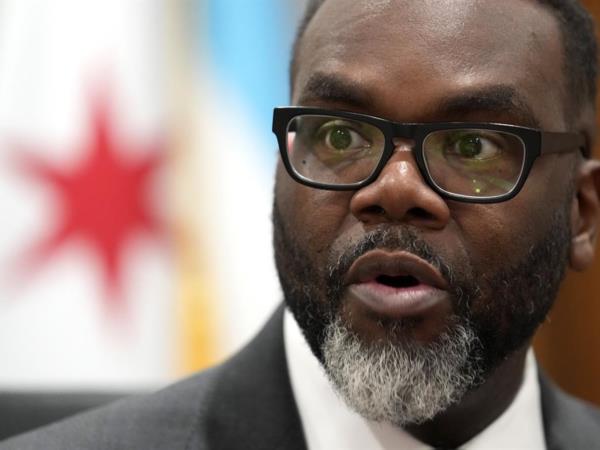
During a recent press conference, Chicago Mayor Brandon Johnson was questioned about whether increased police presence would make the city safer. Instead of providing a direct answer, the mayor chose to highlight the importance of affordable housing and social programs in addressing the root causes of crime.
When pressed about the potential impact of adding 5,000 additional officers to the police force, Mayor Johnson skillfully avoided giving a definitive yes or no response. This strategic move suggests that the mayor is focused on exploring alternative solutions to improving public safety in Chicago.
By shifting the conversation towards affordable housing and social programs, Mayor Johnson is signaling a commitment to addressing the underlying issues that contribute to crime and violence in the city. This approach aligns with a growing recognition that investing in community resources and support systems can be more effective in reducing crime rates than simply increasing police presence.



While the debate over the role of law enforcement in ensuring public safety continues, Mayor Johnson's stance reflects a broader trend towards reevaluating traditional policing strategies and exploring more holistic approaches to community well-being. By prioritizing affordable housing and social programs, the mayor is signaling a willingness to tackle the complex challenges facing Chicago through a multifaceted and inclusive approach.
As the city grapples with issues of crime and public safety, Mayor Johnson's emphasis on affordable housing and social programs serves as a reminder of the interconnected nature of social issues and the importance of addressing root causes to create lasting change.







